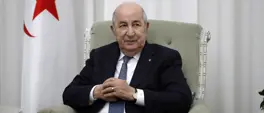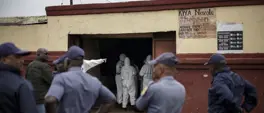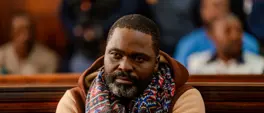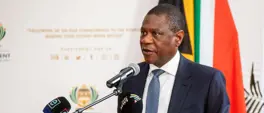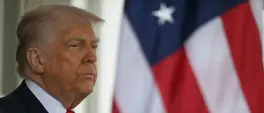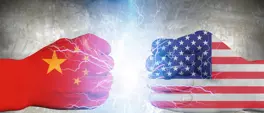MALAIKA MAHLATSI: Characterising the MK Party as 'tribalist' is simplistic
Malaika Mahlatsi
31 May 2024 | 14:01Malaika Mahlatsi challenges the suggestions that the MK Party's strong elections performance is coming from Zulu-speaking people of KZN and that it is organised along 'tribal' lines.
Two days after millions of South Africans went to the polls to vote in the national provincial elections, results operations centres across the country are a hive of activity as votes are being tallied and audited.
While it is still too soon to determine what the outcome will be, with roughly 59% of voting districts being counted by noon on Friday, one thing is clear – the African National Congress (ANC) is in a fight for its survival.
The party’s support is hovering at just over 40%. It is performing poorly in provinces that were historically its stronghold, such as the Northern Cape and Mpumalanga. It has failed to secure an outright majority in the Northern Cape, while it is sitting at just under 50% in a Mpumalanga that it won with over 70% in the 2019 general election. And even where it is maintaining its majority, voter support has declined significantly.
There is no question that South Africans have finally decided that the dominant party-political system no longer has a place in the country – and that the ANC is undeserving of an exclusive mandate to govern. But one party that is emerging as a powerful contender for this mandate is the uMkhonto weSizwe Party (MK Party), an organisation that did not exist until just six months ago.
The party, which is currently led by former ANC president, Jacob Zuma, is making a strong showing in the elections. It currently leads with a majority in KwaZulu-Natal, where Zuma comes from, and has amassed impressive votes in other provinces including Gauteng, the nerve centre of the regional and national economy. All indications are that the MK Party will become the third biggest party in South Africa – a title previously held by Julius Malema’s Economic Freedom Fighters (EFF), which is currently hovering at just over 9% of the vote.
The strong showing of the MK Party has stunned many people, including the ANC. The national chairperson of the ANC, Gwede Mantashe, has alluded to the fact that the performance of the MK Party has caught him by surprise. A curious but deeply problematic narrative that is emerging from the online discussions about the MK Party’s performance is that the organisation was organised along "tribal" lines and that its support is coming from Zulu-speaking people of KwaZulu-Natal.
This discourse must be challenged. South Africans have become very comfortable with throwing "tribalism" around where KwaZulu-Natal is concerned. While I don't discount that there's an element of ethnicism in the politics of KwaZulu-Natal, the reality is that ethnicism is not a feature only of the said province. Regionalism, and by extension, ethnicism, exists across the country and certainly, in the ANC, whose members are the loudest voice in perpetuating a narrative of a "tribalist" MK Party.
The fact of the matter is that regionalism and ethnicism are deeply institutionalised in the ANC. The discourse towards elections in the organisation, as well as the negotiation of power and support, always have a regionalist undertone. The colonial and apartheid history of our country means that regionalism and ethnicism are intertwined because apartheid sought to create ethnic dominance in provinces, regions reflect ethnic profiles.
For example, the North West as a region is also predominantly Tswana; the Free State as a region is predominantly Sotho; the Eastern Cape as a region is predominantly Xhosa and related Nguni ethnic groups, etc. It's almost impossible to separate ethnicity from regionality in South Africa precisely because of this colonial history and spatial construction. Thus, what people euphemistically characterise as "our province being represented" is, in fact, an ethnicist sentiment rooted in the idea that our person, from our province, who speaks like us, with whom we have a shared geo-history, must lead because he/she is our person. It sounds like a progressive demand for representation - until it is done by people of KwaZulu-Natal. And then it's "tribalism" and it's "the Zulus". This is a consistent narrative, one that has been so widely accepted that no one challenges it anymore. Anything having to do with KwaZulu-Natal is inherently and absolutely about "tribalism" regardless of the complex nuances that define the politics of the province and South Africa broadly.
I'm in no way discounting the very serious reality of ethnic politics being at play in the rise of the MK Party. What I am saying is that "tribalism" is not the only explanation. There has to be nuance in how we make sense of the MK Party. There has to be a much more layered analysis that considers a multiplicity of experiences and realities. Some of these factors include the perceived persecution of Jacob Zuma, not as a Zulu man but as an elder – abomination in African culture which remains steeped in the consciousness and identity of many Black people; the internal weaknesses of the ANC in KwaZulu-Natal, punctuated by factional battles that have played themselves out in full view of the country; the rise of the cult of personality in South African politics; the distrust of existing opposition parties; dejection with the ANC and its complicated track record and legacy; re-imagining the Inkatha Freedom Party (IFP) in the absence of a Mangosuthu Buthelezi, who was a metonymy of the organisation and had led it from its inception; apartheid memory that shapes perceptions about the Democratic Alliance (DA); desensitisation that informs why people voted for a party without a comprehensive framework and policies etc.
There are many other factors beyond "tribalism". But when we see "tribalism" as the only explanation for the performance of the MK Party, we don't engage with these factors and other possibilities. This is regressive, not only because there are inherent dangers in a single story (the foundational argument of my recently published book, Why We Vote For The ANC) but also because it prevents parties from engaging in meaningful introspection.
To make sense of the MK Party, we must go deeper than "tribalism", or we run the risk of superficial analysis that does harm to the dignity, experiences and thought process of MK Party voters.
Malaika is a geographer and researcher at the Institute for Pan African Thought and Conversation. She is a PhD in Geography candidate at the University of Bayreuth and is analysing the elections for EWN TV from the National Results Operation Centre in Johannesburg.
Get the whole picture 💡
Take a look at the topic timeline for all related articles.
Trending News
More in Politics

20 December 2025 06:26
SADTU sounds alarm: Rising student violence driving teachers out of the profession
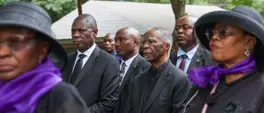
20 December 2025 06:07
‘South Africa is in serious problems’: Thabo Mbeki pays tribute to late advisor Titus Mafolo
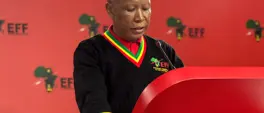
19 December 2025 15:16
EFF condemns US sanctions on ICC judges as a brazen attack on global justice


